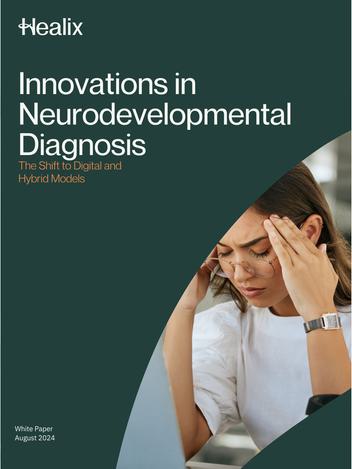Transforming neurodevelopmental assessments

As neurodevelopment conditions become more widely recognised, the way we assess and diagnose these conditions is evolving, with digital and hybrid models paving the way for more accessible and efficient care.
Neurodevelopmental conditions such as Autism Spectrum Disorder (ASD), Attention Deficit Hyperactivity Disorder (ADHD), and Specific Learning Difficulties (SpLDs) like dyslexia are increasingly prevalent. This rise is evident not only among children but also adults seeking overdue diagnoses. The growing demand for effective, timely assessments is reshaping traditional diagnosis methods.
The growing need for change
The NHS faces long waiting times for neurodevelopmental assessments - up to two years in some regions - while the private sector is responding with innovative solutions. Digital and remote assessments are emerging as efficient alternatives to traditional in-person evaluations, offering shorter wait times and greater accessibility.
Digital vs. traditional assessments
Traditional in-person assessments provide real-time interaction and comprehensive observation but often involve lengthy delays and logistical challenges. Digital methods, leveraging online tools and virtual consultations, promise conveniences, faster results, and flexibility. However, they can face challenges like limited observational scope and tech barriers.
The hybrid future
Combining the strengths of both methods, hybrid models are gaining traction. These approaches balance remote initial screenings with in-person follow-ups when needed, ensuring personalised care. For employers, offering digital or hybrid assessments as part of employee benefits demonstrates a commitment to inclusivity, enhancing workplace productivity and wellbeing.





